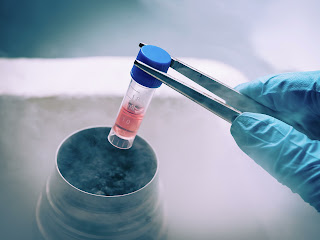Stem Cells; Human Cells That Have the Ability to Develop Into Many Different Cell Types
 |
| Stem Cells |
Stem cells are cells with the potential to develop into many different
types of cells in the body, such as brain cells, blood cells, and muscle cells,
and serve as a repair system for the body. They are the body's raw materials;
cells from which all other cells with specialized functions are generated. Stem
cells replace specialized cells that are damaged or lost. Moreover, they can
divide over and over again to produce new cells. They are defined as precursor
cells that have the capacity to self-renew and to generate multiple mature cell
types.
Stem
cells are a unique and powerful tool for research and medical
treatments. These cells help understand human biology as well as develop new
strategies for therapy. By creating induced pluripotent stem cells (iPSCs) from
the patient’s blood or bone marrow, researchers can study the characteristics
of disease. They can also be used to test potential drugs. Moreover, they may
help restore some functions, such as the heart. For the time being, stem cell
research is limited to treating certain degenerative conditions.
Stem cell research is legal in the U.S., however, there are
restrictions on its funding and use. Currently, the only stem cell-based
treatment that is routinely reviewed and approved by the Food and Drug
Administration (FDA) is hematopoietic (or blood) stem cell transplantation. It
is used to treat disorders and cancers that affect the immune system and the
blood. Currently, the only stem cell products that are FDA-approved consist of
blood-forming stem cells that are derived from umbilical cord blood.
Stem cells can be isolated from the body in many ways, depending
on the tissue. For example, blood stem cells can be taken from a person's
circulating blood, from blood in the umbilical cord when a baby is born, or
from a donor's bone marrow.
For more details,
visit- https://bit.ly/3t7gJov



Comments
Post a Comment